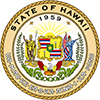Menu
- Home
- About
- Members & Applicants
- Get Started
- Already Covered
- Covered Benefits
- Member Forms
- Provider Directory
- Fee-For-Service
- Rights & Responsibilities
- Member Resources
- Fraud Prevention
Need to get in touch with us?
Contact Us - Plans & Providers
- Managed Care Providers
- Fee-For-Service
- Be a New Provider
- Pharmacy
- Provider Forms
- Dental Plan
- Health Plan Resources
- Provider Resources
- Electronic Visit Verification
- Provider Memos
- Health Assessment
- Provider Exclusion Reinstatement List
- Provider Enrollment Modernization
- Criminal History Record & Background Check
- Grievance and Appeals
- Certification Programs
Need to get in touch with us?
Contact Us - Resources
- FAQ
Need to get in touch with us?
Contact Us



